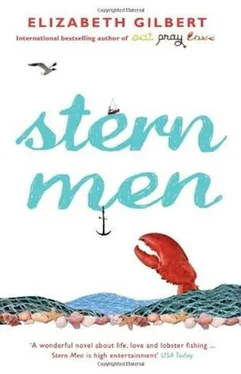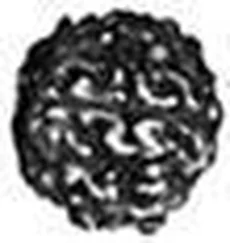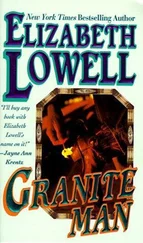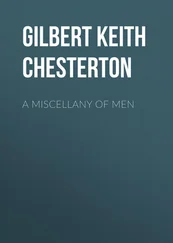They sailed for a long time without any further conversation. They left in the worst kind of fog, the cold fog that sits on the body like damp towels, hurtful to lungs, knuckles, and knees. Birds don’t sing in the fog, so there were no gulls screaming, and it was a quiet ride. As they sailed farther away from the island, the fog diminished and then vanished, and the day turned clear. But it was, nonetheless, an odd day. The sky was blue, the wind was slight, but the sea was a churning mass-huge round swells, rough and constant. This sometimes happens when there’s a storm much farther out at sea. The sea gets the aftermath of the violence, but there’s no sign in the sky of the storm. It’s as though the sea and the sky are not on terms of communication. They take no notice of each other, as if they’ve never been introduced. Sailors call this a “ground sea.” It’s disorienting to be on so rough an ocean under a picnic-day blue sky. Ruth stood against the rail and watched the water seethe and fume.
“You don’t mind the rough sea?” Pastor Toby Wishnell asked Ruth.
“I don’t get seasick.”
“You’re a lucky girl.”
“I don’t think we’re lucky today,” Cal Cooley drawled. “Fishermen say it’s bad luck to have women or clergy on a boat. And we got both.”
The pastor smiled wanly. “Never begin a trip on a Friday,” he recited. “Never go on a ship that had an unlucky launch. Never go on a boat if her name has been changed. Never paint anything on a boat blue. Never whistle on a boat, or you’ll whistle up a wind. Never bring women or clergy aboard. Never disturb a bird’s nest on a boat. Never say the number thirteen on a boat. Never use the word pig. ”
“Pig?” Ruth said. “I never heard that one.”
“Well, it’s been said twice now,” Cal Cooley said. “Pig, pig, pig. We’ve got clergy; we’ve got women; we’ve got people shouting pig. So now we are doomed. Thank you to all who participated.”
“Cal Cooley is such an old salt,” Ruth said to Pastor Wishnell. “Being from Missourah and all, he’s just steeped in the lore of the sea.”
“I am an old salt, Ruth.”
“Actually, Cal, I believe you’re a farm boy,” Ruth corrected. “I believe you are a cracker.”
“Just because I was born in Missourah doesn’t mean I can’t be an island man at heart.”
“I don’t think the other island men would necessarily agree, Cal.”
Cal shrugged. “A man can’t help where he’s born. A cat can have kittens in the oven, but that don’t make ’em biscuits.”
Ruth laughed, although Cal Cooley did not. Pastor Wishnell was looking closely at Ruth.
“Ruth?” he said. “Is that your name? Ruth Thomas?”
“Yes, sir,” Ruth said, and stopped laughing. She coughed into her fist.
“You have a familiar face, Ruth.”
“If I look familiar, that’s only because I look exactly like everyone else on Fort Niles. We all look alike, sir. You know what they say about us-we’re too poor to buy new faces, so we share the same one. Ha.”
“Ruth is much prettier than anyone else on Fort Niles,” Cal contributed. “Much darker. Look at those pretty dark eyes. That’s the Italian in her. That’s from her Eye-talian grandpappy.”
“Cal,” Ruth snapped, “stop talking now.” He always seized the opportunity to remind her of her grandmother’s shame.
“Italian?” Pastor Wishnell said, with a frown. “On Fort Niles?”
“Tell the man about your grandpap, Ruth,” Cal said.
Ruth disregarded Cal, as did the pastor. Pastor Wishnell was still looking at Ruth with great attention. At last he said, “Ah…” He nodded. “I know now how it is that I recognize you. I believe I buried your father, Ruth, when you were a little girl. That’s it. I believe I presided over your father’s funeral. Didn’t I?”
“No, sir.”
“I’m quite sure of it.”
“No, sir. My father’s not dead.”
Pastor Wishnell considered this. “Your father did not drown? Almost ten years ago?”
“No, sir. I believe you’re thinking of a man named Ira Pommeroy. You presided over Mr. Pommeroy’s funeral about ten years ago. We passed my father baiting lobster as we left the harbor. He’s very much alive.”
“He was found caught up in another man’s fishing lines, that Ira Pommeroy?”
“That’s right.”
“And he had several children?”
“Seven sons.”
“And one daughter?”
“No.”
“But you were there, weren’t you? At the funeral?”
“Yes, sir.”
“So I was not imagining it.”
“No, sir. I was there. You were not imagining it.”
“You certainly seemed to be a member of the family.”
“Well, I’m not, Pastor Wishnell. I’m not a member of that family.”
“And that lovely widow…?”
“Mrs. Pommeroy?”
“Yes. Mrs. Pommeroy. She’s not your mother?”
“No, sir. She’s not my mother.”
“Ruth is a member of the Ellis family,” Cal Cooley said.
“I am a member of the Thomas family,” Ruth corrected. She kept her voice level, but she was mad. What exactly was it about Cal Cooley that brought to her such immediate thoughts of homicide? She never had this reaction to anyone else. All Cal had to do was open his mouth, and she started imagining trucks running over him. Incredible.
“Ruth’s mother is Miss Vera Ellis’s devoted niece,” Cal Cooley explained. “Ruth’s mother lives with Miss Vera Ellis in the Ellis mansion in Concord.”
“My mother is Miss Vera Ellis’s handmaid,” Ruth said, her voice level.
“Ruth’s mother is Miss Vera Ellis’s devoted niece,” Cal Cooley repeated. “We’re going to visit them now.”
“Is that so?” said Pastor Wishnell. “I was certain that you were a Pommeroy, young lady. I was certain that the lovely young widow was your mother.”
“Well, I’m not. And she’s not.”
“Is she still on the island?”
“Yes,” Ruth said.
“With her sons?”
“A few of her sons joined the Army. One’s working on a farm in Orono. Three live at home.”
“How does she survive? How does she make money?”
“Her sons send her money. And she cuts people’s hair.”
“She can survive on that?”
“Everyone on the island gets their hair cut by her. She’s excellent at it.”
“Perhaps I should get a haircut from her someday.”
“I’m sure you’d be satisfied,” Ruth said, formally. She couldn’t believe the way she was talking to this man. I’m sure you’d be satisfied? What was she saying? What did she care about Pastor Wishnell’s hair-related satisfaction?
“Interesting. And what about your family, Ruth? Is your father a lobsterman, then?”
“Yes.”
“A terrible profession.”
Ruth did not respond.
“Savage. Brings out the greed in a man. The way they defend their territory! I have never seen such greed! There have been more murders on these islands over lobster boundaries…”
The pastor trailed off. Ruth again did not answer. She’d been watching his nephew, Owney Wishnell, whose back was to her. Owney, standing at the wheel, was still sailing the New Hope toward Rockland. It would have been easy to assume that Owney Wishnell was deaf, the way he had disregarded them all morning. Yet now that Pastor Wishnell had begun to talk about lobstering, a change seemed to come over Owney’s body. His back seemed to draw steady, like that of a hunting cat. A subtle ripple of tension. He was listening.
“Naturally,” Pastor Wishnell resumed, “you would not see it as I do, Ruth. You see only the lobstermen of your island. I see many. I see men like your neighbors all up and down this coast. I see these savage dramas played out on-how many islands is it, Owney? How many islands do we minister to, Owney? How many lobster wars have we seen? How many of those lobster territory disputes have I mediated in the last decade alone?”
Читать дальше









